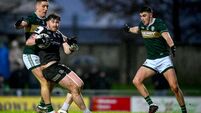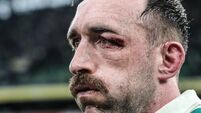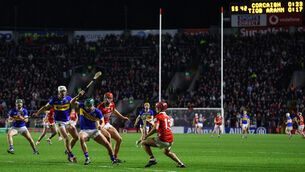The Kieran Shanon Interview
He doesn’t run as fast or as often as he used to, but still he radiates that sense of a man always up to something, always on the go. He meets us in the Dáil, having whizzed in earlier on his motorbike which he regularly uses to commute to Kildare Street. Normally when he peels off his bike gear it’s to emerge in a smart, sharp suit. Today he’s more casual, wearing waist-30 denim jeans just like he did in his athletic prime, as neither the Seanad nor the Dáil are in session this week, but he still has things to do, mail to check, people to meet.
Before his chat with the Irish Examiner, he meets the CNN golf correspondent Shane O’Donoghue in the Dáil bar about doing MC at a $10,000-a-table, Bill Clinton-in-the-house fundraiser in the States next month for the Children’s Medical Research Foundation, the hospital in Crumlin a cause Coghlan has worked full-time for almost 20 years now.












